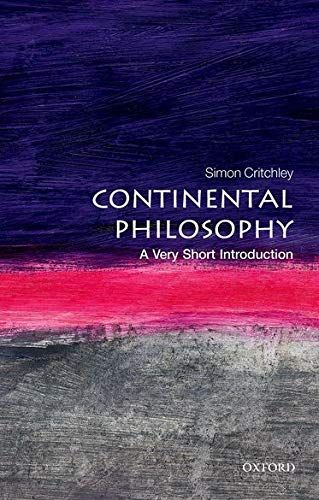
Continental Philosophy: A Very Short Introduction
Simon Critchley's Very Short Introduction shows that Continental philosophy encompasses a distinct set of philosophical traditions and practices, with a compelling range of problems all too often ignored by the analytic tradition. He discusses the ideas and approaches of philosophers such as Kant, Hegel, Nietzsche, Husserl, Heidegger, Sartre, Habermas, Foucault, and Derrida, and introduces key concepts such as existentialism, nihilism, and phenomenology by explaining their place in the Continental tradition. ABOUT THE SERIES: The Very Short Introductions series from Oxford University Press contains hundreds of titles in almost every subject area. These pocket-sized books are the perfect way to get ahead in a new subject quickly. Our expert authors combine facts, analysis, perspective, new ideas, and enthusiasm to make interesting and challenging topics highly readable.
Reviews
Rachel Prudden@stubborncurias
Roel Vandenhoeck@rovan
Mirella Hetekivi@euphoricdopamine
Christian Rotzoll@rtzll